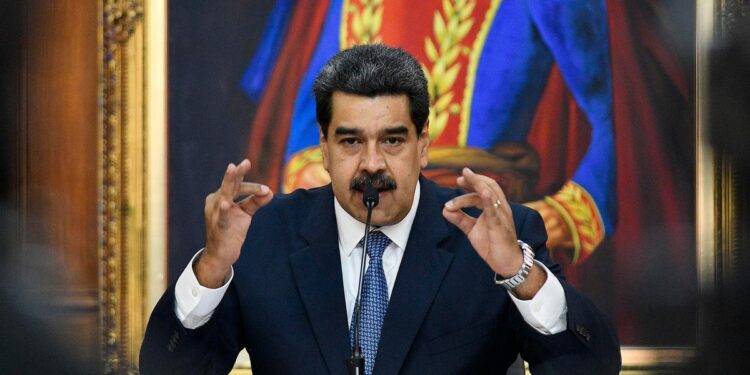The recent visit by Administration officials to Venezuela was heartening, signaling the possibility of a relaxation of sanctions against that country and its government, as the sanctions have clearly become counterproductive. Most important, they appear to be ineffective in reducing the power of the government, which was their primary intent.
To take a step back, sanctions tend to appeal to politicians as an apparently cost-free way to punish opponents of the U.S. and/or those whose behavior appears unacceptable, in terms of suppression of human rights, support for terrorism, nuclear weapons programs, etc., etc. The U.S. is one of the primary employers of sanctions; their utilization dates to colonial times, when Americans felt that the British merchants were so reliant on their business in America that embargos, formal or otherwise, would ratchet up political pressure on the Crown to relent or at least compromise with colonists’ demands. Needless to say, it didn’t work.
Indeed, few politicians advocating sanctions appear to be aware that they have rarely proved effective in achieving their goals, although often they are more interested in posturing than accomplishing anything concrete. (Shocking, I know.) The academic literature demonstrates clearly that sanctions work when a) the target is much weaker than the sanctioning country and b) the demands are limited, and especially don’t threaten the survival of the targeted regime. Richard Nephew’s new book The Art of Sanctions explains that good sanctions require clear goals and an off-ramp, or clear-cut way for the target to satisfy the demands.
Such was not the case in the recent sanctions against the Venezuelan regime which have impoverished the country but left the ruling class mostly untouched. (Yes, I recognize that Venezuela’s impoverishment is largely the result of the incompetent and kleptocratic nature of its regime; sanctions added insult to injury.) Given the societal devastation caused by the government, the pandemic, and the sanctions, in order of impact, the survival of the regime to date clearly indicates that sanctions are simply not effective in changing the regime. History has also suggested that regime overthrow is rarely accomplished by struggling, starving masses who are more devoted to day-to-day survival than politics.
Sadly, it seems as if there will be more support for ending the sanctions from those who want to see lower oil prices than people concerned about the humanitarian crisis in Venezuela, but so be it. Ending sanctions could easily add another million barrels a day of oil supply in the space of perhaps six months. Chevron has been quoted as saying it could quickly add 800 tb/d of supply, and there are doubtless others who can contribute lesser volumes. An influx of condensate for blending with heavy crude but also engineers to perform long-neglected well maintenance would add hundreds of thousands of barrels a day, gradually but accumulating.
The figure below shows the history of Venezuelan production, which first declined in the 1970s/80 as a result of the weak world oil market and the transition from foreign oil operators to the national oil company, Petroleos de Venezuela (PDVSA). Under Luis Giusti, the 1990s policy of ‘apertura’ saw a rapid recovery in production, partly from heavy oil projects with funding from major oil companies (Chevron was one), but also from leasing old ‘marginal’ fields whose production had declined to private oil companies who redeveloped them, adding about 600 tb/d of production (without any new discoveries). This should stand as a beacon to not just the current government in Caracas, but others such as Mexico’s which is trying to revive production by replacing private companies with more investment in the national oil company.
Removing sanctions on Venezuela will not solve the current energy crisis, but the prospect of increased supply later this year should have an immediate impact on oil prices, which would be beneficial to the global economy and energy consumers everywhere. (Not so great for the oil industry, granted.) The health and well-being of the Venezuelan population would greatly benefit and should naturally be the primary goal, and perhaps this will ultimately result in more pressure for reform. Even if that doesn’t happen, removal of sanctions will be a win (for consumers)-win (for the Venezuelan population) and should be promoted by the Administration for those reasons alone.











